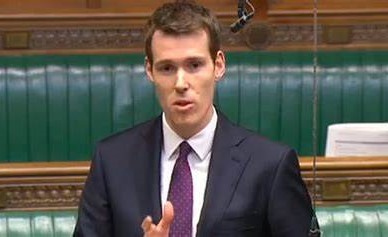The National Residential Landlords Association (NRLA) has responded to new analysis by the Joseph Rowntree Foundation that suggests tax hikes on the private rented sector have benefited first time-buyers.
Ben Beadle, chief executive of the NRLA, insists that the idea that higher taxes are good for renters, including those aspiring to get a foot on the housing ladder, is simply not correct.
He explained: “Both the former head of the Institute for Fiscal Studies and the current Housing Minister agree that tax policy affects rent levels. It is not clear how higher taxes, leading to higher rents, makes it easier for tenants to save for a home of their own.
“Despite some modest improvements in supply, there are still an average of 11 renters chasing every home to rent according to Rightmove. Further tax hikes will serve only to dampen investment in the sector, undermine tenant choice and push rents even higher.
“For millions of people, the private rented sector is vital for ensuring they have a place to call home. Rather than more piecemeal tax grabs, the Government should use the tax system more strategically.
“We need tax policies that encourage long-term investment in new decent quality rental housing, supports investment in energy efficiency improvements, and incentivises responsible private landlords to bring long-term empty homes back into use.
“That’s how we expand supply, drive up standards, and ease pressure on renters.”
Property industry experts have raised concerns in recent weeks that proposals to increase taxes on rental income – specifically by applying National Insurance (NI) contributions – could have significant unintended consequences for both the private rented sector and the wider housing market.
According to reports in The Times, the chancellor is reviewing the idea as part of a wider package of potential tax changes aimed at raising £2bn in revenue. The proposal would see landlords paying NI on rental income, a move that has drawn sharp criticism from landlord groups and housing analysts.
However, industry bodies argue that landlords – many of whom operate as sole traders or small investors – would be disproportionately affected. They warn the tax hike could drive more landlords out of the market, reducing rental supply and placing upward pressure on rents at a time when housing affordability is already strained.
But new analysis by the Joseph Rowntree Foundation takes a different view.
It argues that tax reforms introduced in 2026 marked a decisive shift in housing policy, reducing landlord demand and freeing up homes for first-time buyers.
The think-tank has released a new report, Rebalancing the housing market through tax reform, in which it says the use of the tax system to dissuade buy-to-let acquisitions and, in doing so, boost the position of first-time buyers.
Tax hikes on the private rented sector have benefited first time-buyers – report








